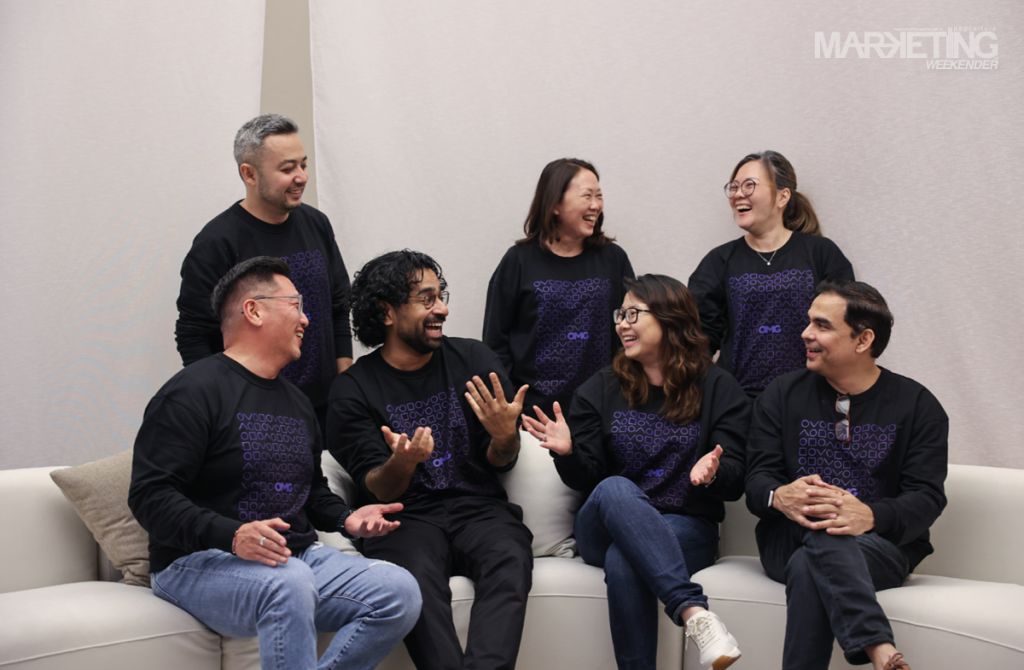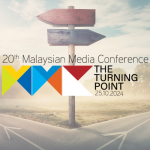Eileen Ooi is always a delight to talk to. I still remember her quote, “Just because illusions aren’t real doesn’t mean they can’t be powerful motivators”. Her’s is a story of leadership from the ground up.
I huddled with Eileen during her shuttles between Singapore and KL recently…
We also spoke about Future Play – Omnicom Media Group Malaysia’s (OMG Malaysia) inaugural flagship event to showcase perspectives on the impact of technological disruptions in media and marketing today, and the anticipated forces crucial to marketing that will shape the next decade.
Eileen explains….
The speed of change is rapid, and marketers are grappling with the need to lead transformation for their marketing discipline and the business.
Our recent OMG Future Play brought OMG’s best minds from Asia Pacific and Malaysia to present points of view through a mix of keynote presentations, rapid fire discussion and break-out laps of tech and capabilities demonstrations for our clients.
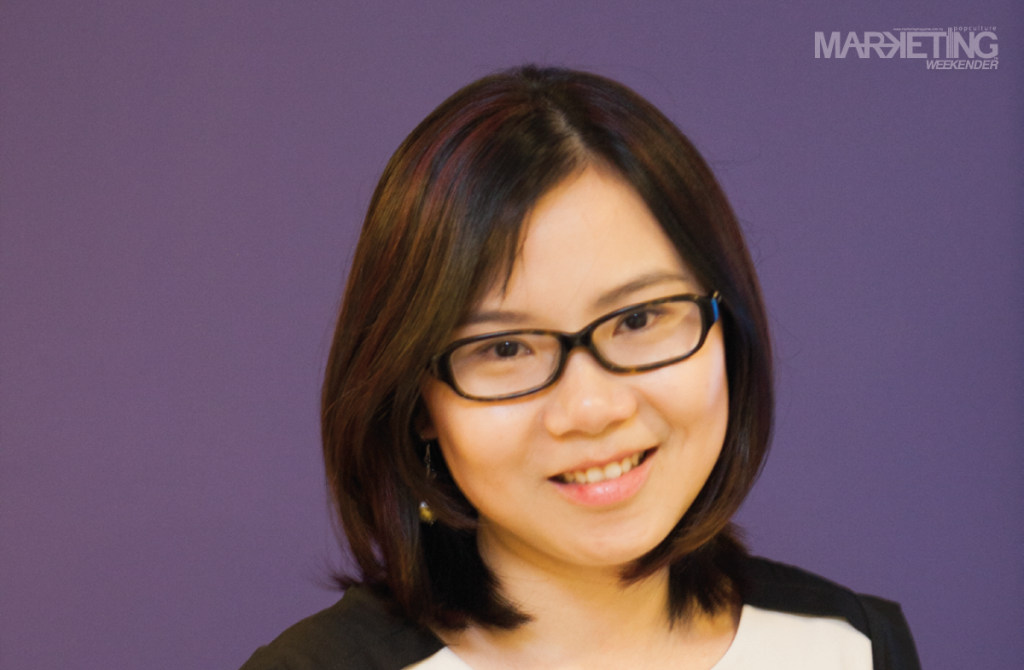
Without getting ahead of ourselves, how do you see AI playing out?
AI has been around for the longest time; it’s behind every algorithm for digital media buying today and simple automation of workflow. Generative AI (GenAI), however, is the one that is truly transformative in the way we do business today.
Despite the hype, the industry is still at a relatively nascent stage.
In the near term, GenAI will help drive efficiencies in agencies’ daily workflow operations, expedite and enhance creative content production, and improve media efficiency delivery.
Despite the proliferation of technology, media planning and strategies still primarily reside within the agencies’ domain; AI is unable to replace a human’s capacity in this space, to drive creativity and produce strategies.
We have also embedded the power of GenAI into our marketing orchestration platform – Omni Assist. Omni Assist takes on queries from media planners and deciphers large volume of data to generate insights quickly.
Nonetheless, the heavy lifting of turning those insights into strategies and creative media plans remains the responsibility of our media planners and strategists.
We are rapidly expanding our GenAI agents across different applications in Omni, from audience understanding to governance of media executions and optimising campaign recommendations.
Congratulations on your second term as President of the Malaysian Digital Association (MDA)…
Thank you so much, it is actually a testament to MDA’s value to the industry and our ability to serve and represent the digital players.
In the world of volatility, uncertainty, complexity, and ambiguity (VUCA), there is always unfinished business in the digital space. Things are fast evolving and at MDA, we are committed to continue being the leading voice in actively shaping Malaysia’s digital economy.
MDA is focused on five core strategic areas:
- Technical Governance – We work closely with the Ministry of Digital and MDEC to support industry players regarding the still open discussion on Withholding Tax matters as well as in discussion with MCMC on the changes in content code.
- Community Building – We are exploring talent initiatives in partnership with universities and reviving MDA Mentoring to continue our support in elevating industry talents.
- Knowledge & Measurement – A revamp of MDA’s thought leadership pieces and reports will provide further visibility to the industry.
- Powering Innovation – Our successful D Awards and D Conference are our milestone events.
- Communications & Membership – MDA continues to work closely with various associations to elevate value for our members and the industry.
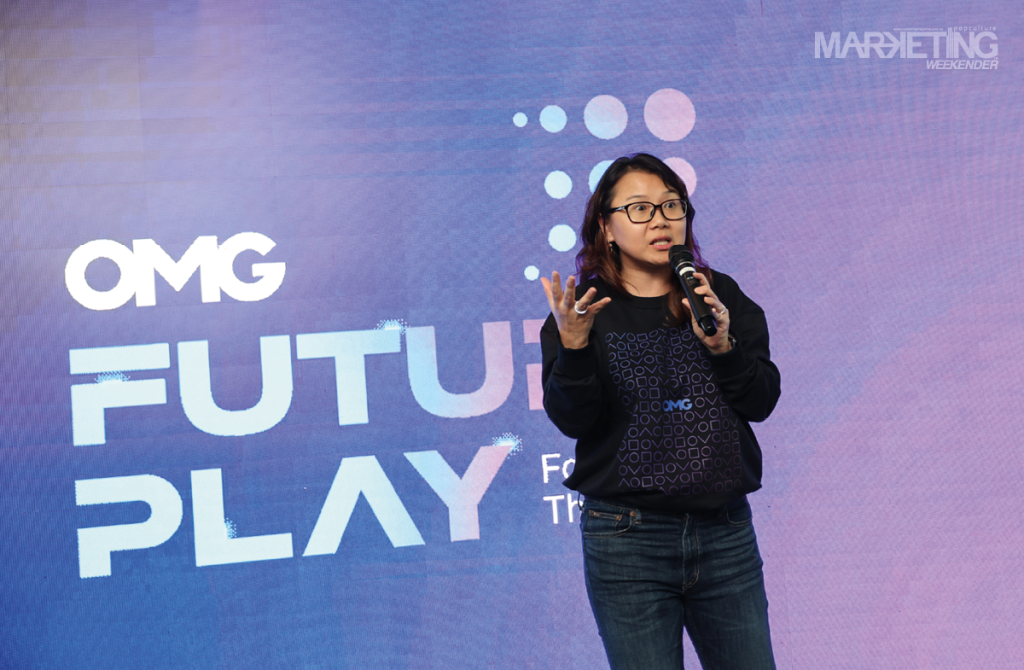
One hot button issue yet to be resolved after so many years is a common media currency for television and screens…
In my view, the current dual measurement puts a strain on agencies to manage the cost of tool subscription against a landscape of declining TV spends.
The initiative of a common measurement system requires support from the Malaysian government and the responsibility should not only fall on media owners or media agencies.
In line with rise of new channels such as CTV (Connnected TV), the initiative also needs to be updated to account for the changing landscape to find for a common video measurement currency instead of merely TV.
DOOH (Digital Out-Of-Home) is the current rave because if its agility and dynamism. But do you think the power of DOOH is something marketers fully understand, and know how to harness to advantage?
DOOH in Malaysia is currently not being utilized to its fullest potential, especially in data integration for omnichannel marketing and attribution. There needs to be investment behind technology and connectivity of systems for the industry to have true omnichannel measures.
Nonetheless, I believe Malaysia is on the right track.
The growth of DOOH will continue and the elevation of innovation and measurement will be addressed with more technology partners entering the market.
This, however, doesn’t mean that static OOH is dead, it is far from it. Every channel and format has its role to play.
As such, static OOH will continue to provide large scale impact for brands that demand full ownership and association of certain sites, location, and stature.
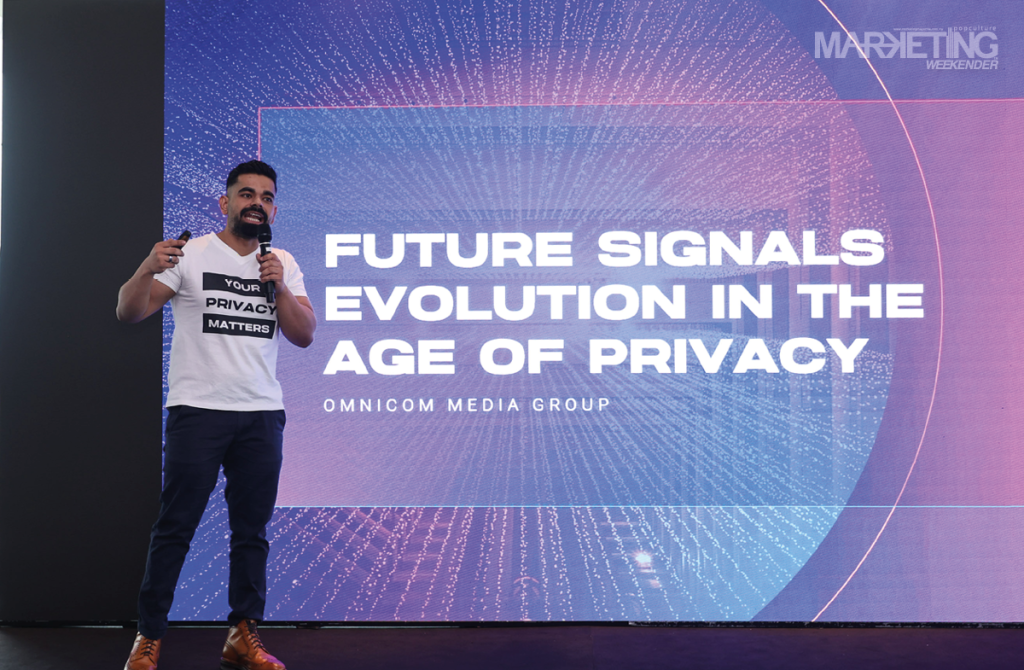
What are your thoughts on Personalisation at Scale, in the context of balancing data-driven personalisation with privacy concerns….
Over 66% of Asians prefer to have personalised or relevant advertising. 44% of us are willing to exchange data for more personalised advertising, solutions or services (Source: Forbes 2023).
Personalisation will become even more pertinent as the number of walled gardens increases and as consumers become more connected across devices.
There is a need for marketers to drive brand fame and equity building to create future desires.
At the same time, they should leverage personalisation and precision marketing to target the mid-funnel to connect, convert, and activate in-market consumers, thereby pushing them down and through the funnel.
Privacy concerns will continue to grow if advertisers are not responsible with data management and show poor ethics in marketing communications.
Globally, we see government bodies reinforcing policies to protect consumers, and I believe all players – marketers, agencies, and industry associations – should collaborate with government bodies to build a stronger and safer digital ecosystem for the future while still meeting personalised needs.
What is the state of play when it comes to upskilling and growing digital talent?
As Malaysia is still building up its pool of good digital talent, the challenge for us is twopronged: nurturing future talents and retaining existing talents in Malaysia.
MDA is doing its part with our Mentoring initiative and Talent initiative in partnership with universities to nurture future talents.
Our aim is to work closely with organisations, universities, and other association partners to continuously invest in nurturing and retaining Malaysia’s digital talents.
The old ways of working don’t apply anymore; young digital talents look for purpose, culture and leadership to commit their time to an organisation.
In addition, Malaysian organisations are encouraged to be open to explore beyond Malaysia and consider new operational models such as offshoring and fluid talents.
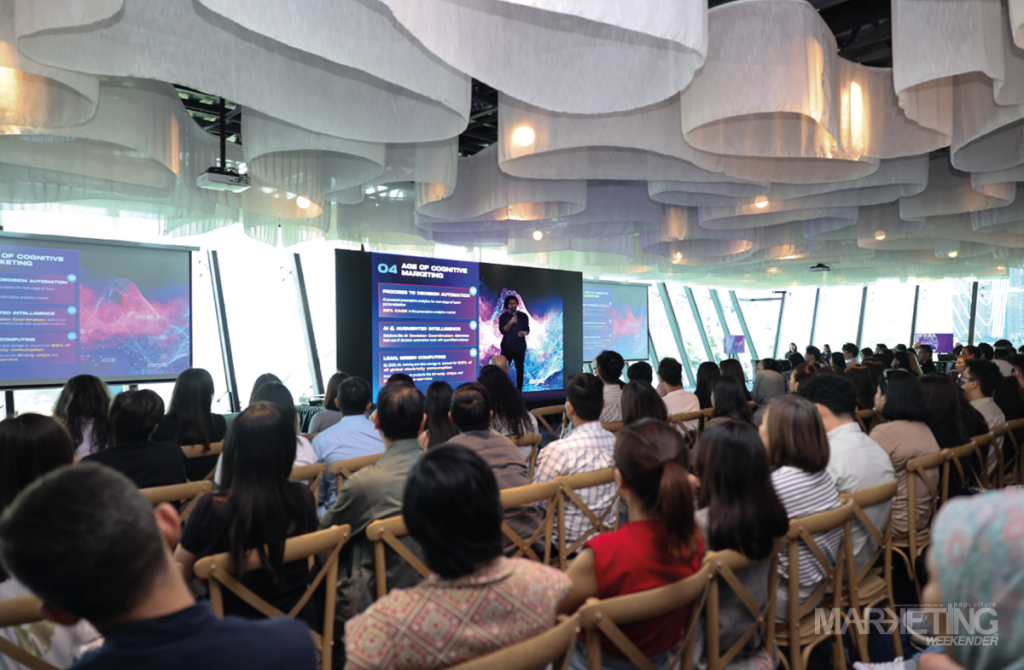
Good people will be constantly poached because of the talent pool. While this is unavoidable in a free market…
In my view, Malaysia does not lack talent but rather the nurturing mindset within organisations or business leaders.
Too often, businesses want the quick fixes – find a strong talent to hit the ground running and fix problems regardless of whether we are providing the right platform, environment, and support for employees to succeed.
Hence, businesses revert to doing what they know best – keep paying to plug and fix problems.
As agency leaders, we need to lead by example and put people back at the centre of our business.
A good environment, culture, and leadership allow for businesses to thrive, and we need to be willing to toe those fine lines in everyday decisions and make hard calls to keep our talent at the centre of our decision-making.
Trust me, it’s easier said than done.
At OMG Malaysia, our business leaders went through a 5-week leadership self-realisation training, and we embarked on adopting Adizes’ PAEI leadership behaviour training module.
Research shows that Gen Zs choose an organisation because of its purpose, values, and leadership. As leaders, we need to invest time, money, and effort to nurture and build strong leadership characteristics to support young talents, sow hope and build resilience in them.
They are our futureworkforce; if we don’t begin to change our own leadership style, our organisation’s environment, and define a stronger purpose for our business, then we only have ourselves to hold up the mirror against.
Is there a role for MDA to ensure transparency digital, where fakeness and social engineering are rampant?
In my view, fake content can only be governed with better policies and MDA alone is unable to drive this.
At OMG Malaysia, we have developed a global AI policy on how we work with GenAI, creating a secure cloud platform and ensuring full confidentiality and protection of our clients’ data and information.
MCMC, in recent months, has taken issues seriously and kicked off a series of initiatives, including a social media licence and new policies around content governance on platforms. The MDA provides its points of view whenever MCMC leans on associations for feedback and recommendations.
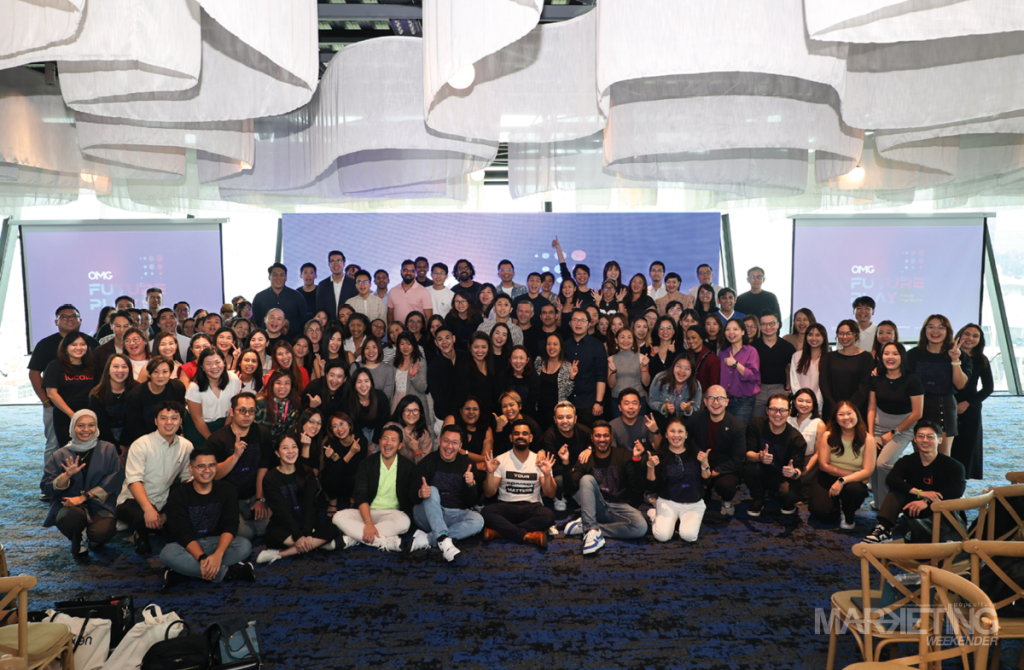
MARKETING Magazine is not responsible for the content of external sites.


